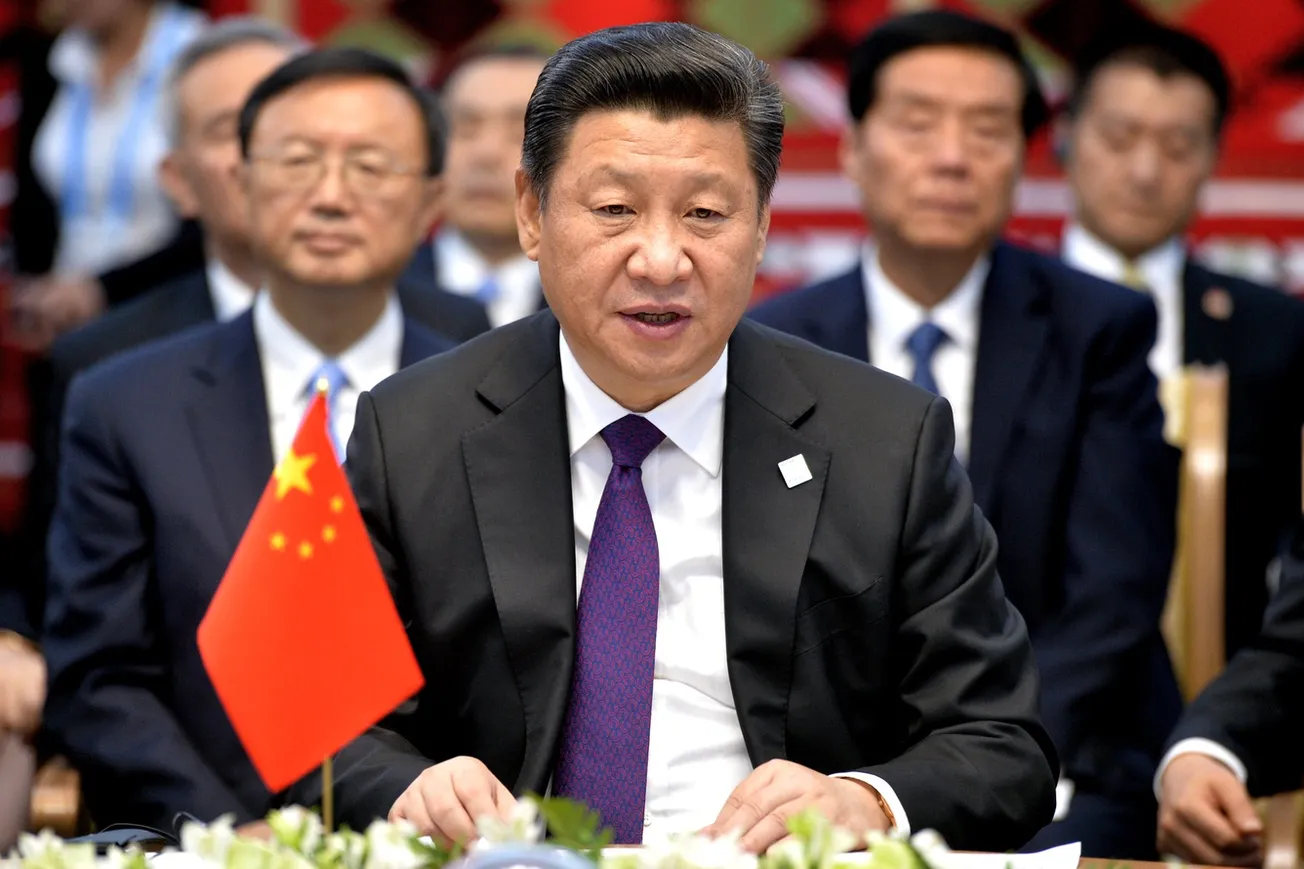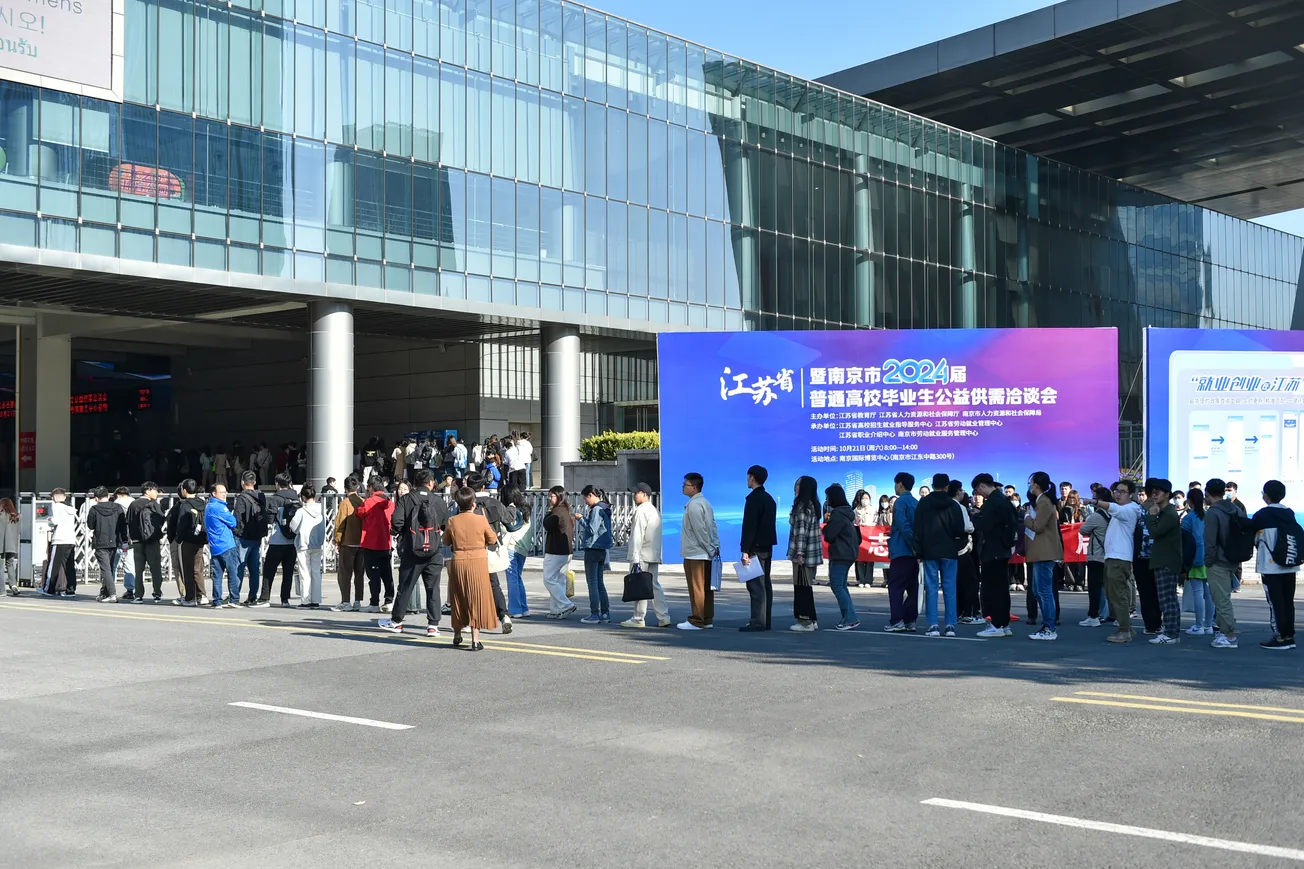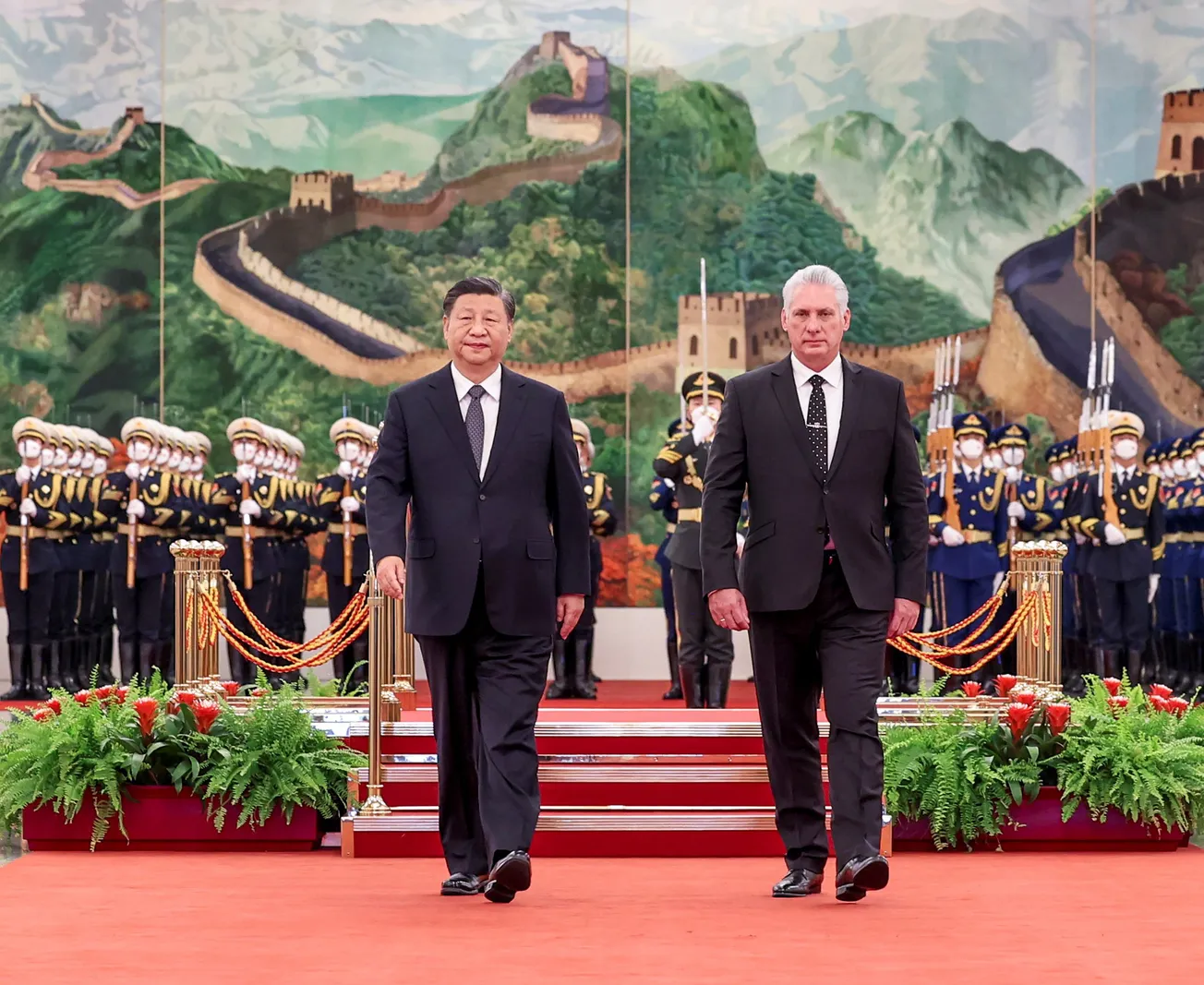French President Emmanuel Macron and European Commission President Ursula von der Leyen were on a state visit to China earlier this week.
President Macron took an appeasing posture. He pressed Xi Jinping to convince Putin and end the Ukraine war.
However, Ursula von der Leyen, in a press conference, dished out some straight talk to Xi. She said the use of force against Taiwan would be unacceptable to Europe.
“We all agree that stability in the Taiwan Strait is of paramount importance. We have a very clear interest in preserving this stability, the peace, and the status quo in the Taiwan Strait, and therefore nobody should unilaterally change the status quo by force in this region,” Von der Leyen said.
“The threat or the use of force to change the status quo is unacceptable. And it is important that the tensions that might occur should be resolved through dialogue.”
Xi Jinping did not like it. He responded angrily that it was “wishful” thinking and anyone who expects China to compromise on Taiwan issue will only shoot himself in the foot.
“The Taiwan issue is the core of China’s core interests. The Chinese government and Chinese people will never agree to anyone making a fuss about the one-China issue,” Xi said.
Both Macron and Von der Leyen departed the country Friday.
Meanwhile, Taiwanese President Tsai Ing-wen, transiting through California after visiting allies, held a historic meeting with U.S. House Speaker Kevin McCarthy, the No. 3 official in the American government, on Wednesday.
We had opined that the Speaker should not meet the Taiwanese President and escalate tensions. Our reasoning was Taiwan already has the support of the United States, so it's unnecessary to further strain the relationship between the U.S. and China by trying to strengthen it even more.
Tsai returned to Taipei on Friday.
China did not like the meeting. It was strike two. China threw tantrums after Nancy Pelosi’s visit.
To show its disapproval, this morning, China sent 42 warplanes near Taiwan as the country kicked off three days of military drills and “combat readiness patrols” around the island.’
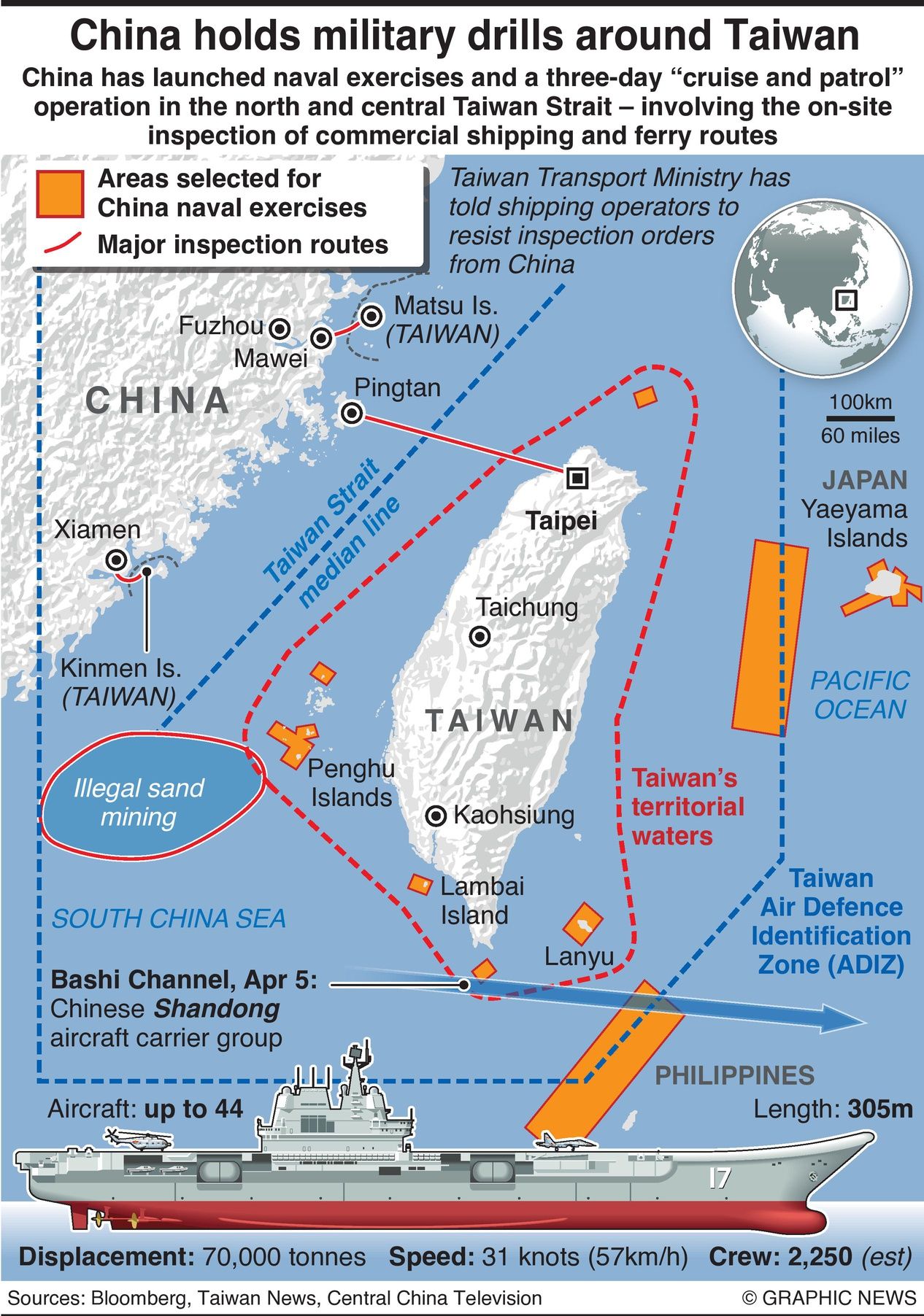
Public Opinion
How do Americans feel about critical questions related to the China-Taiwan issue? A Golden/TIPP Poll of 1,414 Americans completed on Wednesday has the answer.
According to the poll, 69% of Americans across party lines consider China-Taiwan tensions a significant concern for the United States. The survey shows that 74% of Democrats, 72% of Republicans, and 61% of Independents share the sentiment.
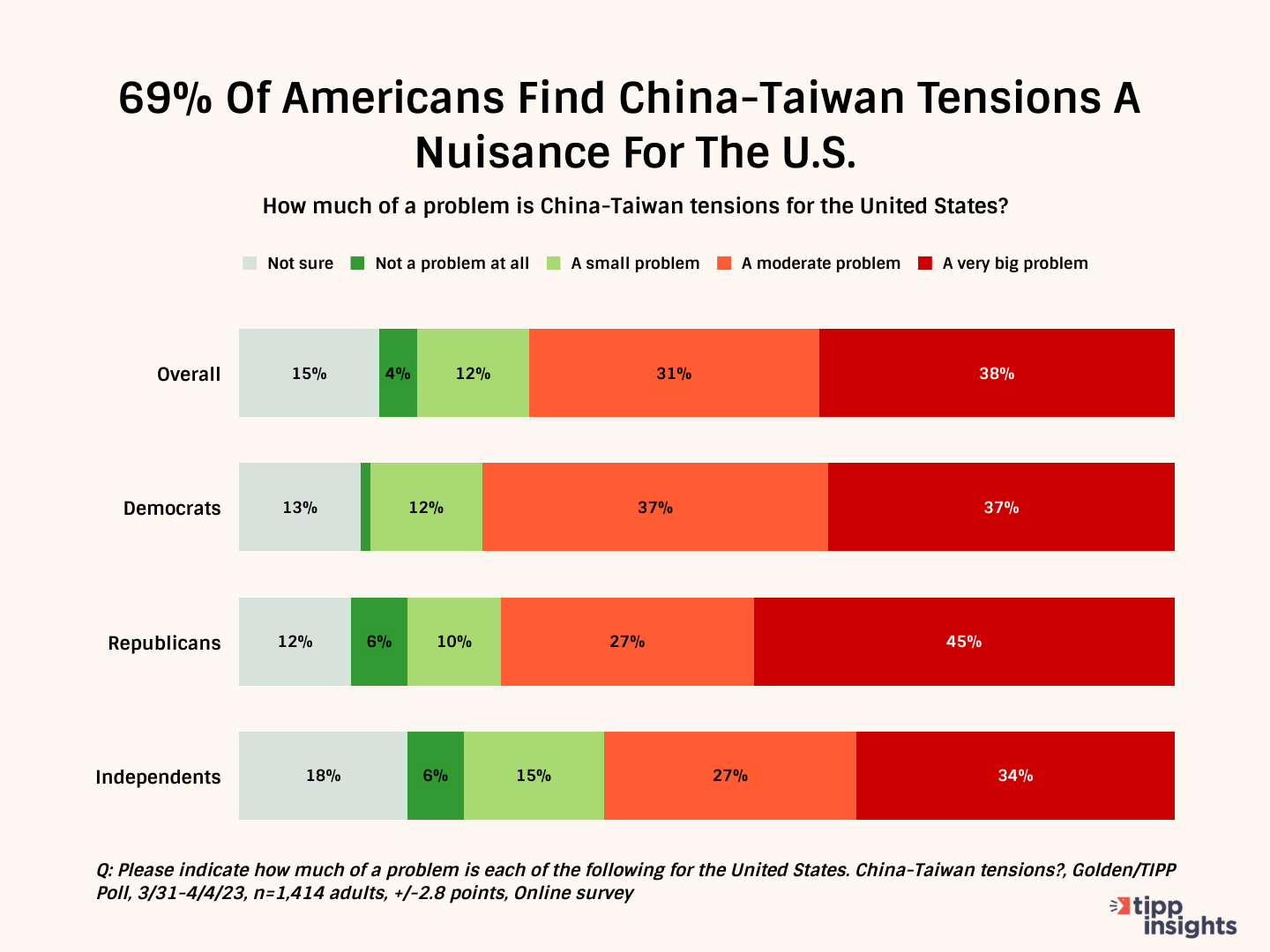
If China were to invade Taiwan, three-fourths support economic sanctions; a majority, 53 percent, support using U.S. troops. 28% “support strongly,” and another 25% “support somewhat.” While 57% of Democrats and 56% of Republicans support using U.S. troops, 45% of independents do so.
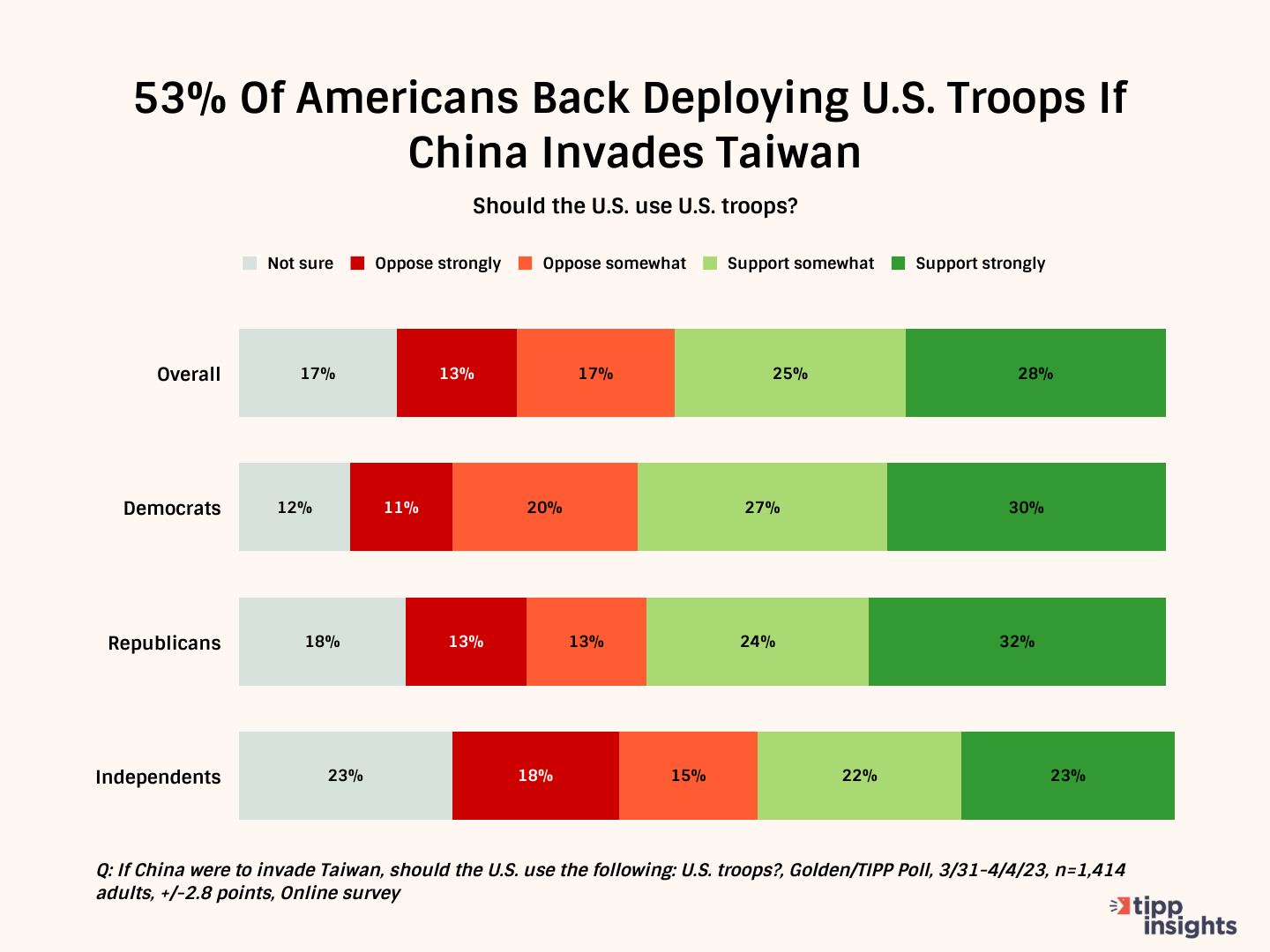
The U.S. standing in the world is weakening. One example, this week, CIA Chief William Burns was in Saudi Arabia complaining about how the U.S. was blindsided by its cozying up with China and Iran.
There is a price to pay for America’s weakness. As President Reagan said: “We maintain the peace through our strength; weakness only invites aggression.”
Hey, want to dig deeper? Download data from our store for a small fee!
Like our insights? Show your support by becoming a paid subscriber!
Want to show your appreciation? Donate

